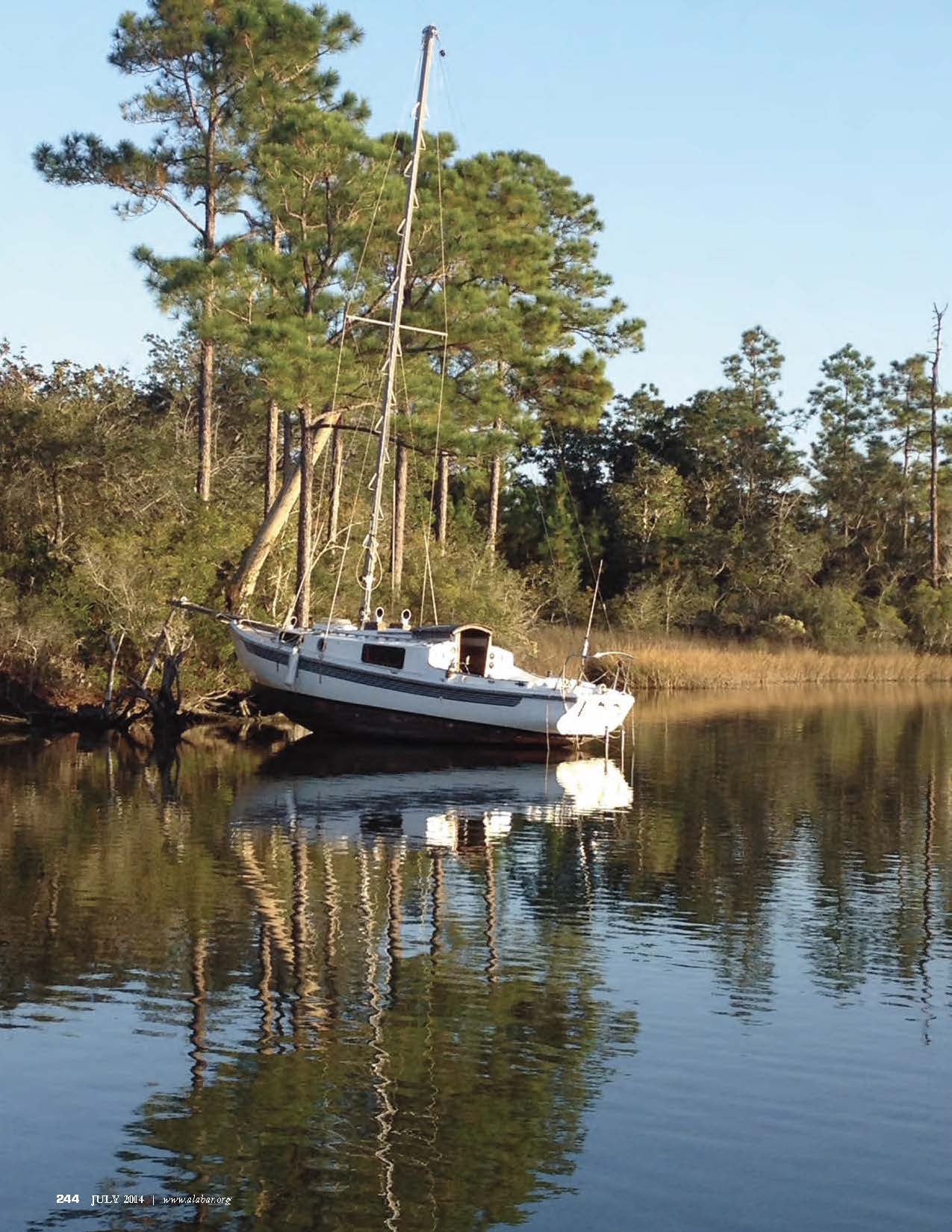The Law of Salvage and the Law of Finds
| Publication year | 2014 |
| Pages | 0245 |
| Citation | Vol. 75 No. 4 Pg. 0245 |

A popular misconception is that a salvor (one who takes possession of salvage) who preserves property from peril1 on navigable water acquires ownership, as opposed to a right to receive compensation. This summary provides an overview of the law of "finds" versus the law of "salvage." A good rule of thumb for the practitioner is to consider the law of salvage as the default setting, and the law of finds as the exception to the rule.
Law of Finds
The law of finds can be summarized, generally, as a situation involving 'finder's keepers' where the subject property has been abandoned. Under the law of finds, "title to abandoned property vests in the person who reduces that property to his or her possession." Treasure Salvors ,Inc. v. Unidentified Wrecked Sailing Vessel, 569 F. 2d 330, 337 (5th Cir. 1978). Absent clear abandonment, however, the law of salvage applies, which provides only compensation for the successful salvor, but not full ownership of the subject property. R.M.S. Titanic Inc. v. Wrecked Vessel, 286 F. 3d 194, 205 (4 Cir. 2002), quoting Benedict on Admiralty §150. Abandonment must be shown based on the standard of clear and convincing evidence. Columbus-America Discovery Group v. Atl. Mut. Ins. Co., 974 F. 2d 450, 464-65 (4 Cir. 1992).
Elements of Salvage
The elements of salvage require the "existence of a marine peril, voluntary action by the salvor, and successful salvage." R.M.S. Titanic Inc. v. Wrecked Vessel, 286 F. 3d 194, 206 (4 Cir. 2002), citing The Sabine, 101 U.S. 384 (1879). "To sustain a claim for marine salvage, a plaintiff must prove that he voluntarily rendered services which preserved, or contributed to the preservation of, imperiled marine property. Blackwall, 77 U.S. 1, 12 (1869)." Padilla and So. Puerto Rico Towing v. The Norseman, 1967 A.M.C 1531, 1545 (D.P.R. 1967). Success is essential. Where a salvor does not "save the property" he will be denied any fee or reward. Hener v. United States, 525 F. Supp. 350, 357 (S.D.N.Y 1981).
Ownership vs. Compensation
As noted above, a would-be salvor does not acquire ownership of salvaged property. Instead, the general rule is that "the salvor of derelict property does not acquire title (unless no owner comes forward); he can claim only an increased award...." Shoenbaum, Admiralty and Maritime Law, §16-7 Treasure salvage, and the law of "finds," p. 2 (4th ed. Westlaw 2010 update). In other words, the successful salvor acquires a right to compensation, but only temporary possession. The salvor obtains "only a superior right of possession, and not title, until a court has passed on title, and the salvage fee." Hener, supra, 525 F. Supp. 350, 357 (S.D.N.Y 1981).
Abandonment
Abandonment is difficult to prove. "In admiralty cases, courts have traditionally applied a legal fiction to ships, under which an owner or the owner's successor retains title to a ship no matter how long it has been abandoned." Dluhos v. Floating and Abandoned Vessel, 1999 A.M.C 658, 671 (2 Cir. 1998); 3A Norris, Benedict on Admiralty §150, at 11-1 (1997)("Should a vessel be abandoned without hope of recovery or return, the right of property still remains with the owner.") "Abandonment is defined as the 'surrender, relinquishment, disclaimer, or cession of property or of rights. Voluntary relinquishment of all rights, title, claim and possession, with the intention of not reclaiming it.'" United States v. Steinmetz, 973 F. 2d 212, 222 n. 10 (3d Cir. 1992), quoting Black's Law Dictionary 2 (5 ed. 1979).
The rationale for the foregoing is to apply the law of salvage instead of the law of finds, "because salvage law encourages less competitive and secretive forms of conduct than finds law." Id., Dluhos, 1999 A.M.C at 671. Based on that rationale, the courts favor the law of salvage. Hener v. United States, 525 F. Supp. 350, 356 (S.D.N.Y. 1981).
Stated another way, "the law of salvage applies as a general rule. The law of finds applies only in two categories of cases: (1) where the owners have expressly and publicly abandoned their property; and (2) where items are recovered from an ancient shipwreck and no one comes forward to claim them."...
To continue reading
Request your trial
